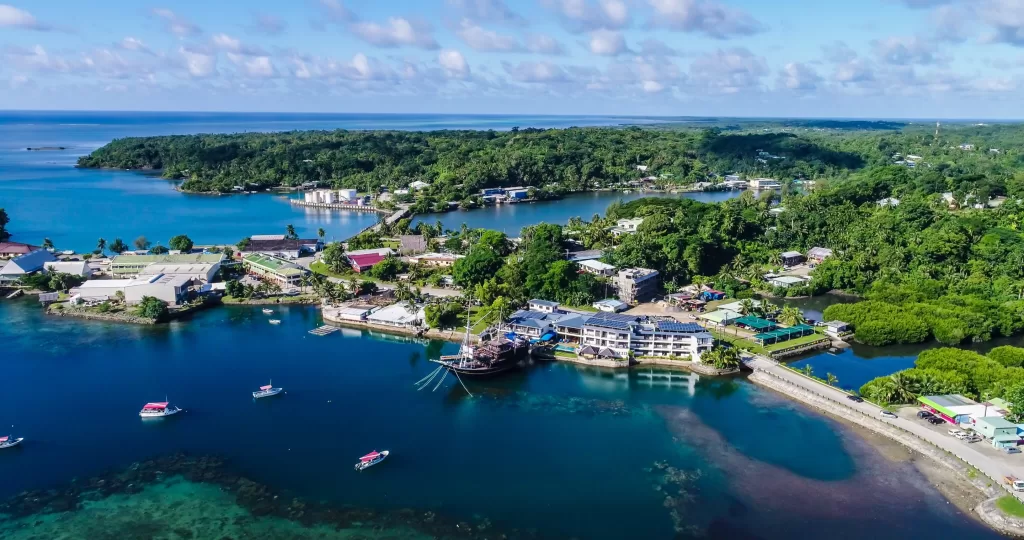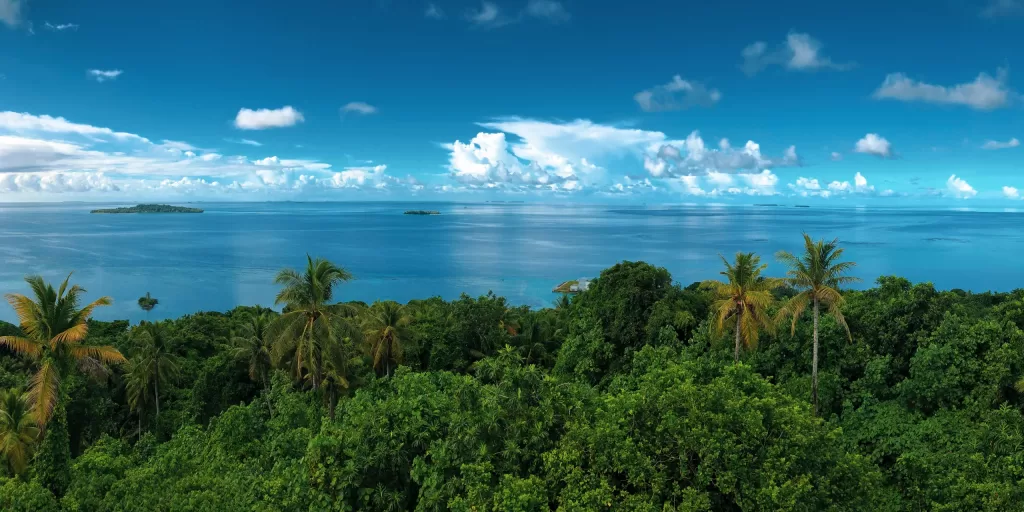Federated States of Micronesia Country Report

The Federated States of Micronesia (FSM) is a sovereign island nation located in the Western Pacific Ocean. It consists of four states: Yap, Chuuk, Pohnpei, and Kosrae. FSM gained independence in 1986 after being administered by the United States under a UN Trusteeship. The country operates under a federal system with a president as the head of state and a unicameral legislature. Fishing and agriculture are significant contributors to the economy, with tourism also playing a role. Despite its small size and remote location, FSM faces challenges such as limited infrastructure, vulnerability to natural disasters, and dependence on external aid. Diplomatic relations with regional and international partners are crucial for FSM’s development and sustainability.
Last updated: April 29, 2022
Security
The Federated States of Micronesia (FSM) faces various security challenges and risks, primarily due to its geographic location and limited resources. Being situated in the Western Pacific Ocean, FSM is vulnerable to natural disasters such as typhoons, earthquakes, and rising sea levels due to climate change. These events can cause significant damage to infrastructure, disrupt livelihoods, and threaten the safety and well-being of its population. Additionally, FSM is confronted with economic challenges, including high unemployment rates and dependence on external aid, which can contribute to social instability and political tensions. Furthermore, the country’s extensive Exclusive Economic Zone (EEZ) makes it susceptible to illegal, unreported, and unregulated (IUU) fishing activities, posing threats to food security and marine resources.
Addressing these security risks requires effective disaster preparedness, sustainable development strategies, and cooperation with regional and international partners to safeguard FSM’s stability and prosperity.
Last updated: April 29, 2022
Infrastructure

The infrastructure in the Federated States of Micronesia (FSM) is limited and faces challenges due to its remote location and small size. While there are basic road networks and ports in some areas, infrastructure development is hindered by financial constraints and vulnerability to natural disasters. Access to reliable electricity, clean water, and healthcare services can be inconsistent, particularly in more remote regions. Furthermore, FSM’s infrastructure struggles to support economic growth and improve living standards, requiring ongoing investment and strategic planning to address these deficiencies.
Last updated: April 29, 2022
Environment

The environment in the Federated States of Micronesia (FSM) is characterized by its rich biodiversity and fragile ecosystems, including coral reefs, mangroves, and tropical forests. However, FSM faces significant environmental challenges, including climate change impacts such as rising sea levels, ocean acidification, and increasingly frequent and severe storms. These phenomena threaten coastal communities, infrastructure, and livelihoods, exacerbating food and water insecurity. Additionally, unsustainable fishing practices and pollution pose threats to marine ecosystems and biodiversity.
FSM has recognized the importance of environmental conservation and resilience-building efforts, including coral reef monitoring and protection measures, sustainable fisheries management, and initiatives to promote renewable energy and reduce carbon emissions. Collaborative action with international partners is essential to address these environmental challenges and ensure the sustainability of FSM’s natural resources for future generations.
Last updated: March 15, 2022
Health and Medical
Healthcare in the Federated States of Micronesia (FSM) faces challenges due to limited resources and access, particularly in remote areas. The country deals with various health issues, including communicable diseases such as tuberculosis and dengue fever, as well as non-communicable diseases like diabetes and cardiovascular conditions. FSM’s healthcare system works to provide essential services, but there is a need for improved infrastructure, healthcare personnel, and access to medical supplies to address these health challenges effectively.
Last updated: February 25, 2022
Political
In the Federated States of Micronesia (FSM), political governance is structured as a federal republic with a democratic system. The country operates under a constitution adopted in 1979, which establishes a separation of powers among the executive, legislative, and judicial branches. The President serves as the head of state and government, elected by the Congress from among its members for a four-year term. The Congress, a unicameral body, consists of 14 members representing the four states of Yap, Chuuk, Pohnpei, and Kosrae. Political parties play a relatively minor role in FSM politics, with candidates often running as independents. While the political system generally upholds democratic principles, challenges such as limited political participation, transparency issues, and dependence on external aid for economic sustainability persist. Overall, FSM’s political landscape is characterized by a commitment to democratic governance within the constraints of its unique geographic and economic circumstances.
Last updated: March 25, 2022















